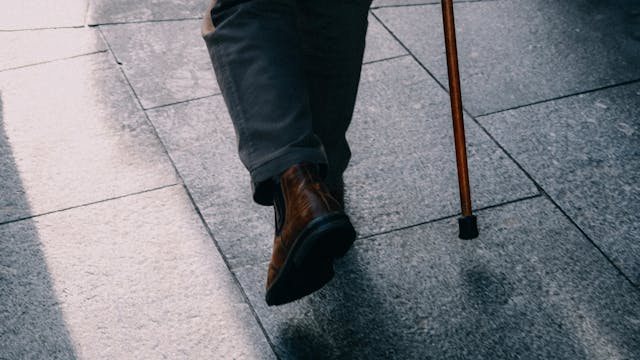A new study published on 9 June 2025 in Aging (Aging-US), Volume 17, Issue 6, introduces an innovative tool that could transform how clinicians assess muscle health in older adults. Titled “Developing a quantitative estimate of muscle age acceleration by a novel phenotypic clock: cross-sectional study in healthy, middle-aged and older adults,” the paper presents research led by Lucia Ventura, Antonella Cano, and Marco Morrone, with corresponding author Professor Franca Deriu from the University of Sassari. This research proposes a method for predicting the biological age of muscles, offering a practical solution for identifying individuals at early risk of sarcopenia—a condition marked by age-related muscle loss and functional decline.
The researchers developed a metric called Muscle Age Acceleration (MAA), which reflects the difference between a person’s chronological age and the biological age of their muscles. This tool is particularly valuable because it relies on widely accessible and inexpensive measures such as handgrip strength, walking speed, and mobility tests—assessments already familiar in both clinical and community settings. The simplicity of the MAA approach makes it feasible to integrate into routine health screenings for older adults, allowing early detection of those at heightened risk before the onset of overt symptoms or physical limitations.
Involving 215 healthy individuals aged between 50 and 90 years, the study employed a cross-sectional design to evaluate muscle function and body composition. Through this data, the team found that approximately 25% of participants exhibited signs of accelerated muscle ageing. These individuals had a significantly greater probability of developing sarcopenia, despite showing no clinical signs of disease at the time of assessment. This finding underlines the often-silent nature of muscle decline, where damage accumulates subtly until it impairs everyday function, increasing vulnerability to falls, frailty, and loss of independence.
A particularly striking outcome of the study was the clear stratification of risk among different muscle ageing trajectories. Participants were categorised as accelerated, normal, or decelerated agers. Those in the accelerated group faced a 19% risk of sarcopenia, compared with 9% in the normal group and just 2% in the decelerated group—a statistically significant difference. Moreover, individuals with accelerated muscle ageing also exhibited subtle changes in blood-based biomarkers, particularly those associated with inflammation. This suggests that MAA is not only a functional indicator but may also reflect deeper biological processes that contribute to age-related decline.
The implications of this research are far-reaching. Sarcopenia is a growing concern as populations age, yet current clinical practices often miss early signs until meaningful muscle loss has already occurred. The introduction of a tool like MAA could enable health professionals to intervene earlier, tailoring preventive strategies such as strength training, physical therapy, and nutritional modifications to those most at risk. It may also serve as a foundation for future research into the biological mechanisms that underlie muscle ageing, especially regarding chronic inflammation and its role in degenerative processes.
In conclusion, this study represents a significant advancement in the assessment of muscle health in older adults. By quantifying muscle ageing in a precise, cost-effective, and non-invasive manner, the MAA tool has the potential to reshape preventive care in geriatric medicine. It moves beyond the limitations of chronological age as a marker of risk. It opens the door to more personalised interventions that can preserve mobility, reduce the burden of disability, and enhance quality of life as people grow older. If further validated, MAA could become a standard component of ageing assessments in both clinical and community settings worldwide.
More information: Lucia Ventura et al, Developing a quantitative estimate of muscle age acceleration by a novel phenotypic clock: cross-sectional study in healthy, middle-aged and older adults, Aging-US. DOI: 10.18632/aging.206269
Journal information: Aging-US Provided by Impact Journals LLC








